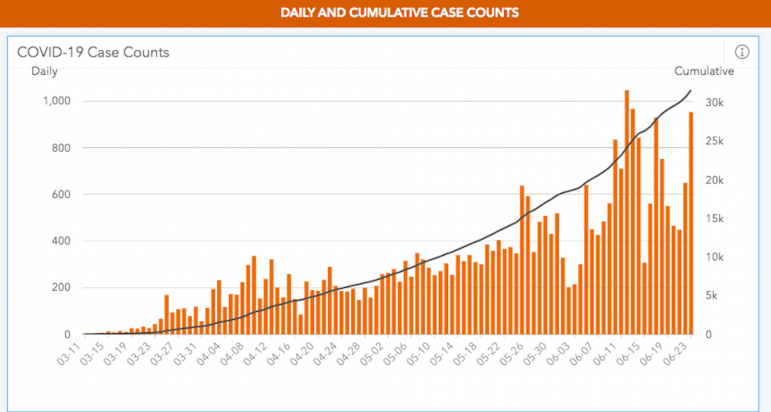The biggest challenge to stopping the spread of COVID-19 now is the public’s desire to return to the “old normal,” Dr. Molly Fleece, UAB assistant professor of infectious diseases, said Wednesday.
“Masks work,” Fleece said as UAB and other health officials brace for increased summer activities and the Fourth of July.
The number of COVID-19 cases in the state rose Wednesday by 954, one of the state’s largest daily increases since the pandemic began, according to the Alabama Department of Public Health.
Nationwide, the country reported 35,000 cases of COVID-19 today, the third-highest increase since the pandemic and the highest single-day increase since late April, according to the New York Times.
Alabama is one of the states showing the fastest increase in cases.
New York, New Jersey and Connecticut today told travelers in nine states that they must quarantine themselves for 14 days if they visit, and Alabama is on that list. Previously, Kansas also required Alabama travelers, or anyone who has gone through Alabama, to quarantine themselves immediately on entering that state.
That area recently has beaten back the largest outbreak of coronavirus in the country.
In New York, travelers aren’t checked at the border. But travelers caught not following the order could face fines of up to $10,000 and be put into mandatory quarantine, the governor said today.
Changing Our Ways
Fleece urged people planning summer activities to adopt a new normal: wearing masks, washing hands, avoiding crowds and physically distancing.
She suggested those planning to travel or eat in restaurants consider doing so in off-hours when there are fewer people.
At the beach, keep social distances and choose less crowded beaches, she suggested.
“Masks work and their use will affect how many cases we have in the state,” she said.
The largest increase in COVID-19 cases has been among people aged 25-49 — the age group most likely to socialize. In Alabama, 41.5 percent of all cases since the pandemic now are among people in that age group, according to Department of Public Health Data.

